Facebook, an early major player in the social media space, is now relatively unpopular with American teenagers and has declined as a news destination in recent years as its parent company moves to deemphasize news on the platform. Still, as of 2023, a larger share of Americans say they regularly get news there (30%) than on any other social media site.
Our survey looks at U.S. Facebook users’ experiences with getting news. Among the key findings:
- Although fewer than half of Facebook users say news is a reason they use the site, most see some kind of news content on the platform. This content is more commonly opinions or funny posts related to current events rather than news articles linked or shared, similar to patterns seen on Instagram and TikTok.
- Friends, family and acquaintances are major sources of news on Facebook. A large majority of regular Facebook news consumers say they get news from friends and family (85%). This is higher than the share who say they get news from news outlets or journalists on the platform (68%).
- Republican news consumers on Facebook are more skeptical toward news on the platform than Democrats. Among regular news consumers on Facebook, 38% of Republicans say they often see inaccurate news there, compared with 29% of Democrats. Republican Facebook news consumers also are more likely than Democrats to say they think Facebook influences the news stories they see a lot (40% vs. 26%).
How people get news on Facebook
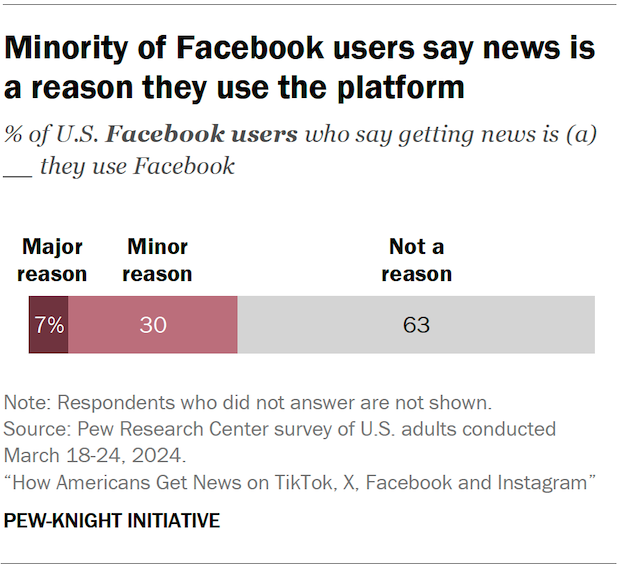
Fewer than half of Facebook users (37%) say they regularly get news on the site.
A similar share say that news is either a major (7%) or minor (30%) reason they use Facebook. A majority (63%) say news is not a reason they are on the platform.
Read more: Reasons for using Facebook
Regardless of whether they regularly get news from Facebook – or whether news is a reason they visit the site – a large majority of Facebook users see news-related content on the platform.
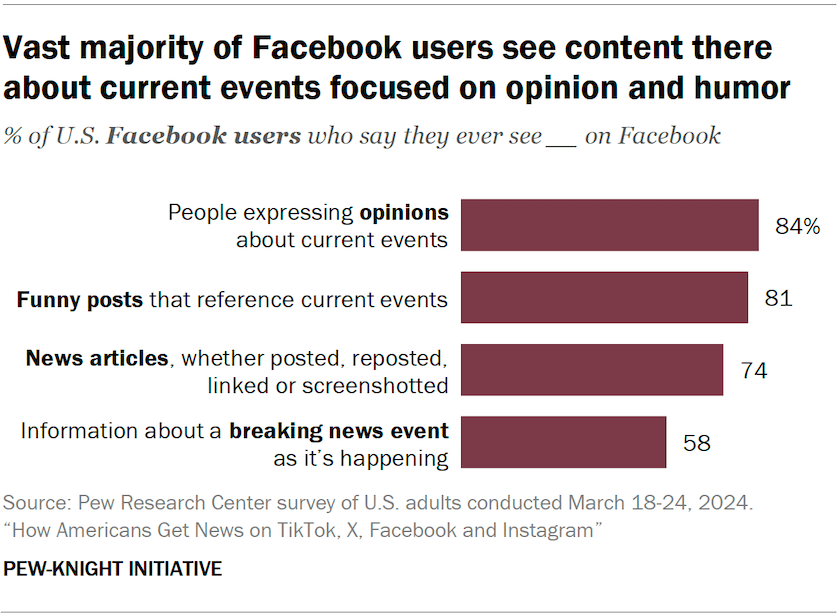
The most common types of content related to news that U.S. Facebook users see are opinions about current events (84% of users say they see this type of content) and funny posts that reference current events (81%). About three-quarters of users (74%) say they see news articles, whether from posts, reposts, links or screenshots, and 58% say they ever see breaking news about an event as it is happening on Facebook.
Roughly nine-in-ten Facebook users (91%) ever see at least one of these types of content on the platform.
What sources people get news from on Facebook
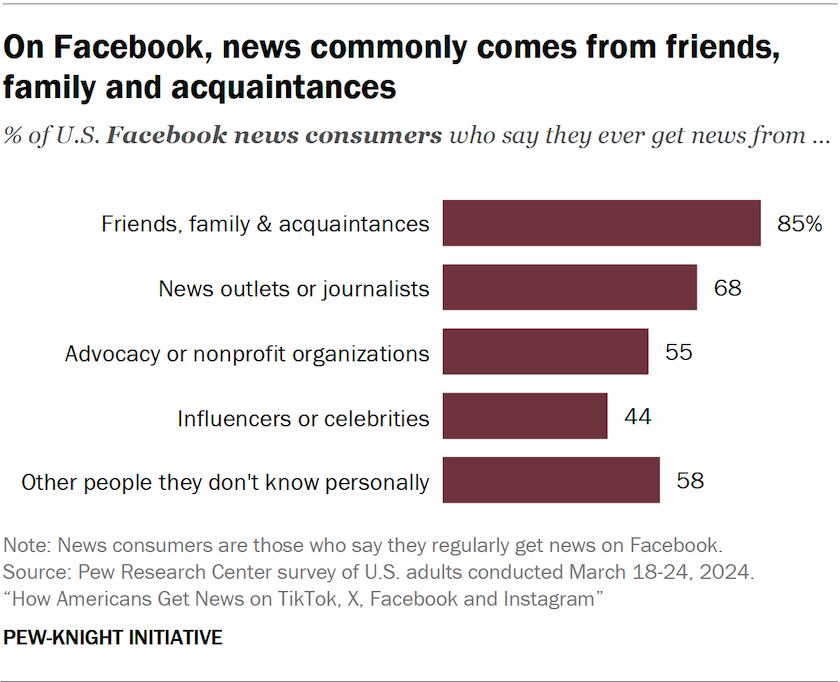
True to Facebook’s social origins, friends, family and acquaintances are the most common source of news on the site. Among Americans who say they regularly get news on the site, 85% say they ever get news from friends, family or acquaintances.
That’s higher than the percentage of regular news consumers on Facebook who get news from news outlets or journalists (68%), advocacy groups or nonprofits (55%), influencers or celebrities (44%), or any other people they don’t know personally (58%).
Facebook news consumers are also more likely than news consumers on other major social media sites to get news from friends and family.
Views about news on Facebook
Inaccurate information
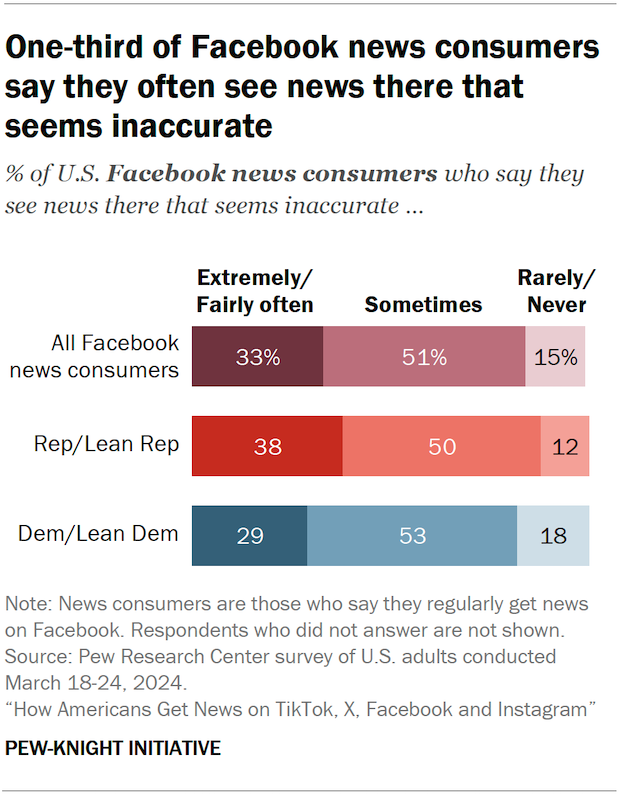
A third of U.S. adults who regularly get news on Facebook say they extremely or fairly often see news on the platform that seems inaccurate, while about half (51%) say they see this sometimes.
Views by party
Republican news consumers (including independents who lean Republican) on Facebook are slightly more likely than their Democratic counterparts (including Democratic leaners) to say they often see news on Facebook that seems inaccurate (38% vs. 29%).
Facebook’s influence on news
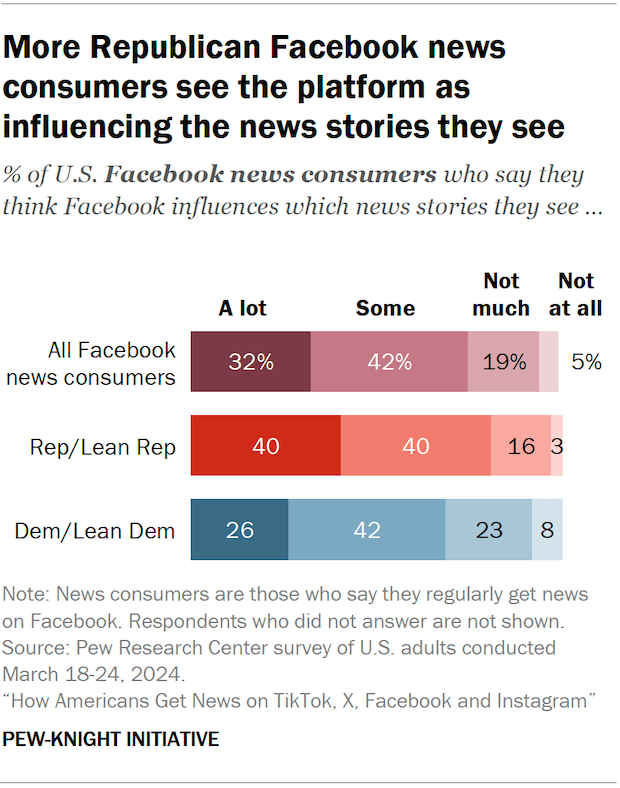
Most Americans who regularly get news from Facebook (74%) say they think the platform influences which news stories they see at least some, including 32% who say Facebook influences which news stories they see a lot.
Views by party
Republican news consumers on Facebook are more likely than their Democratic counterparts to say that Facebook influences which news stories they see. Eight-in-ten Republican Facebook news consumers think Facebook influences which stories they see at least some, compared with about two-thirds of Democrats who get news on the site (68%). This includes 40% of Republicans (vs. 26% of Democrats) who think Facebook influences which news stories they see a lot.
Facebook as a source of unique news
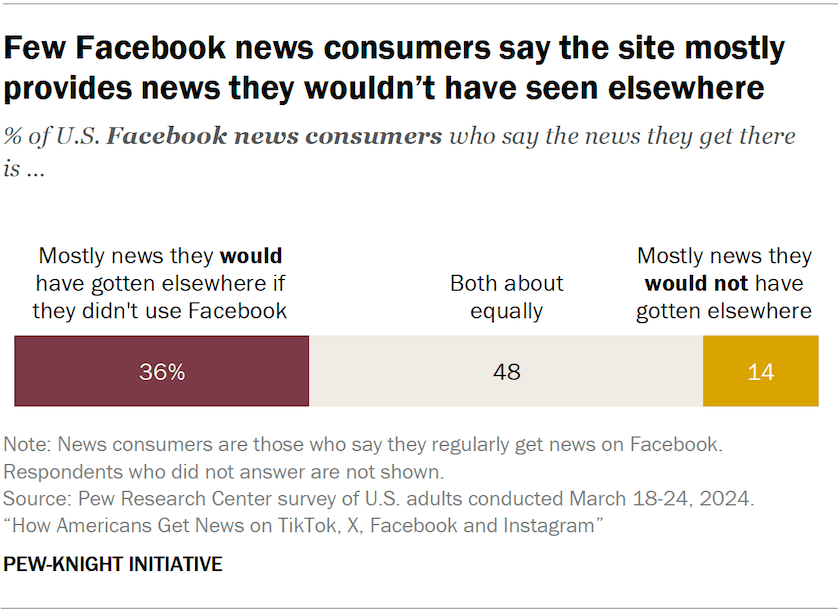
Relatively few Facebook news consumers see the news they get on the platform as mostly unique to Facebook. Just 14% say the news they see on Facebook is mostly news they would not have gotten elsewhere, while far more (36%) say it is mostly news they would have seen somewhere else if they didn’t use Facebook. The largest portion (48%) say the news they see is about an even mix of both.
Feeling worn out by news on Facebook
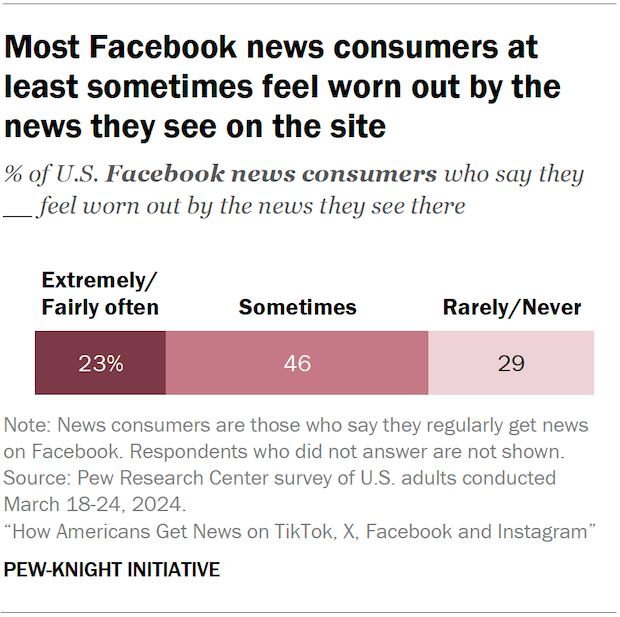
Among Americans who regularly get news on Facebook, 23% say they extremely or fairly often feel worn out by the news there, while an additional 46% say they sometimes feel this way.
News consumers who see at least some political content on Facebook are more likely than those who see less politics-related content to feel worn out by the news on the platform at least sometimes (79% vs. 55%).




